News
Restructuring: At Last Tinubu Speaks Out, Says Nigeria Needs Urgent Repairs
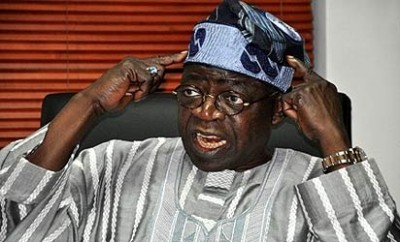
- Rejects Call For Break-up
- Seeks Return to 1963 Constitution
- FG is Detracted From Key Missions it Can Perform.
National Leader of the All Progressives Congress (APC), Asiwaju Bola Tinubu has finally spoken out on restructuring and aligned himself with those canvassing for urgent repair of the fabrics of the nation, saying time was no longer on the side of Nigeria.
Tinubu, however, cautioned those agitating for the break-up of the country to tread softly, noting that taking such step “would make us more vulnerable to outside influences.”
The former Lagos State governor spoke yesterday as Principal Guest of Honour/Keynote Speaker at the 2017 Annual Dinner of King’s College Old Boys’ Association (KCOBA) at King’s College, Lagos. He was represented by former Lagos State Commissioner for Finance, Wale Edun.
Speaking on the topic, ‘A New Nigeria or a Better One: The Fitting Tools of a Great Repair’, Tinubu affirmed his belief in Nigeria, noting that it would become a great nation and a leader among other African nations.
He said: “I am a firm believer in Nigeria. I believe this land will become a great nation and a leader among other African nations. We can resolve our dysfunctions in a manner that will make this nation rise as a standard of decency, justice and prosperity for all Nigerians.
So many excellent people have devoted themselves, even given their very lives, to give life to this nation. I dare not cast aside their hardy and brave work as if it were nothing.
Many things we now enjoy and see as good are due to these people. We have benefited from their labour and sacrifice.
Morality and my understanding of our history will not allow me to discard such contributions to our humanity and common welfare.
“Being more pragmatic, separating the nation into small pieces resolves nothing and creates additional problems. The world marches toward integration.
Europe, America, Asia seek trade and commercial pacts that will make them more integrated markets.
Notwithstanding Brexit, the European Union (EU) grows more integrated in the functions of governance by the day.
Thus, while nations more powerful and developed than us seek to pool their wealth and might, some of us seek to whittle this nation into smaller pieces.
Such a thing would make us more vulnerable to outside influences. We would forfeit our rightful place on the world stage and as a leader of this continent.
Moreover, not every split solves a problem. The political mentality, either good or bad, that defined a group before the split will remain after the divide.
If one is imbued with factionalism, that perspective will remain even when the immediate problem is surmounted. Division will manifest differently, but manifest it will.
A new factional bigotry will arise to replace the old. The cycle of tension and unrest will take its inexorable toll. Just ask the people of South Sudan if their woes ended when they left Sudan.
When your heart is geared toward division, you will seek it within a single tribe, even a single family.
“Thus, I oppose talk of break-up and all other exotic political arrangements tantamount to it.
That I am a foe of disunity does not mean I have blinded myself to the truth that our nation is in need of great repair.
We all see the nation for what it is. Some look further to see the nation for what it is not and they rush to condemn it.
I choose to see the nation for what it can be and thus seek to nurture and cultivate it so that this Nigeria may bring forth the fullest blossoming of its riches, resources and ingenuity of its diverse people.
We need a better Nigeria and we must move toward it with speed. Once an ally, time no longer is on our side.”
Tinubu threw his weight behind calls for true federalism and restructuring of the country, stressing that, “it would be better to restructure things to attain the correct balance between our collective purpose on one hand and our separate grassroots realities on the other.”
He added: “Sadly, the Federal Government is now doing things the states can perform with equal dexterity and which detract the Federal Government from the key missions only it can perform.
This imbalance between the roles of the federal and state governments lies at the root of our difficulties.
To achieve better levels of overall governance, we need to re-balance the duties of the federal and state governments.
The legacy of undemocratic rule has arrogated too much power and resources to the federal at the expense of state governments. The quest to correct the imbalance is the essence of federalism I have advocated for so many years.
Due to our particular political history and its military legacy, the quality of our federalism and the quality of our democracy are intertwined.
The more we repair federalism, is the more we improve democracy.
In my mind, federalism denotes a division of labour between the federal and state governments that functions to maximise the benefits of governance to the people.
“True federalism is that brand which provides that the Federal Government should focus on those few but essential things only it can provide such as foreign policy, defense, and national economic policy.
Additionally, in those matters where uniform standards and requirements are appropriate, the Federal Government must take the lead.
All other matters should be left to the states. If there is doubt over a particular issue, the presumption should be that the states, not the Federal Government, should take the lead.”
He continued: “Constitutionally, we are a federation of 36 states. However, the vestiges of past military rule continue to haunt the democratic road we hew. We function like a unitary state in many ways.
We cannot become a better Nigeria with an undue concentration of power at the federal level. Many of the 68 items on the Exclusive Federal List should be transferred to the Residual List.
This would be in harmony with the 1963 Constitution, again an instance of reaching back to revive something old yet more likely to give us a better Nigeria.
That prior constitution granted vast powers to the regions enabling them to carry out their immense responsibilities as they saw fit.
By virtue of the clear fact that regional governments were closer to the people, they had a better feel for the material and intangible priorities of their populations. We must return to this ideal.”
Tinubu, who also touched on many economic issues, urged the Federal Government to initiate sound economic policies that would end over dependence on oil revenue and foster the development of strategic industries that create jobs as well as spur further economic growth.
“The Federal Government should institute a policy of tax credits, subsidies and insulate critical sectors from the negative impact of imports.
We need a national infrastructure plan,” he noted. He stressed that the country must adhere to the values and policies that suggest that tomorrow can be made a better place than today.
“I refuse to believe we have become such an untoward lot that the longer we live together, the more estranged we become.
Just as we have gathered here today, we must gather about the national table to repair our political discourse
-
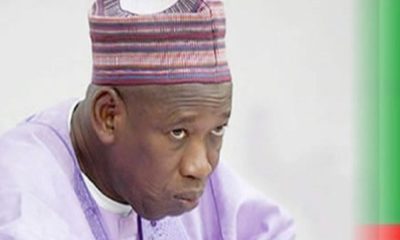
 News3 days ago
News3 days agoAPC National Chairman: Moves To Oust Ganduje Put Presidency In Quandary
-
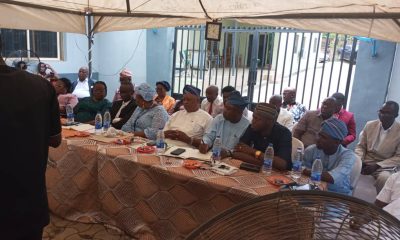
 News2 days ago
News2 days agoOsun RAAMP Opens Bid For Road Constructions Statewide
-
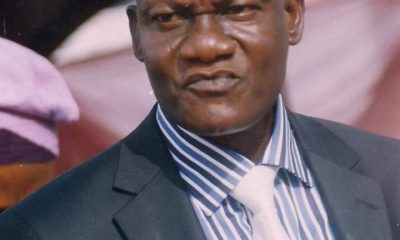
 News4 days ago
News4 days agoComrade Joseph Sangosanya dies at 67
-
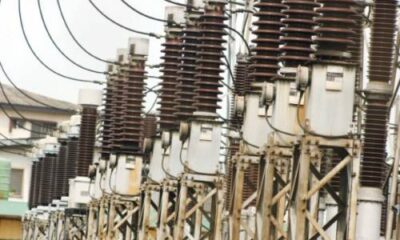
 Opinion2 days ago
Opinion2 days agoRegulatory Commission Must Wakeup From Slumber To Rescue EKEDC From The Shackles Of Dere Otubu By ADAPHAI

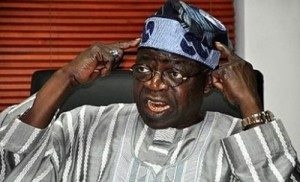



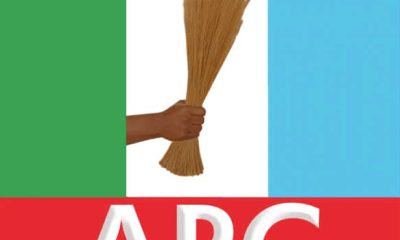



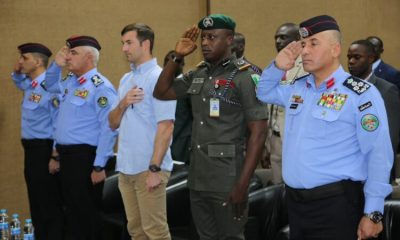

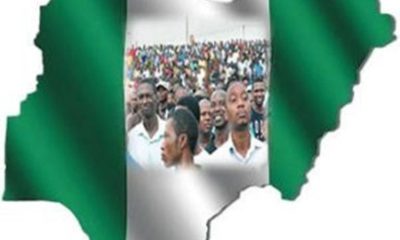

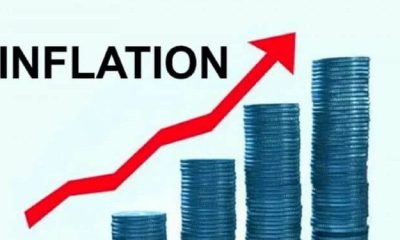



1 Comment